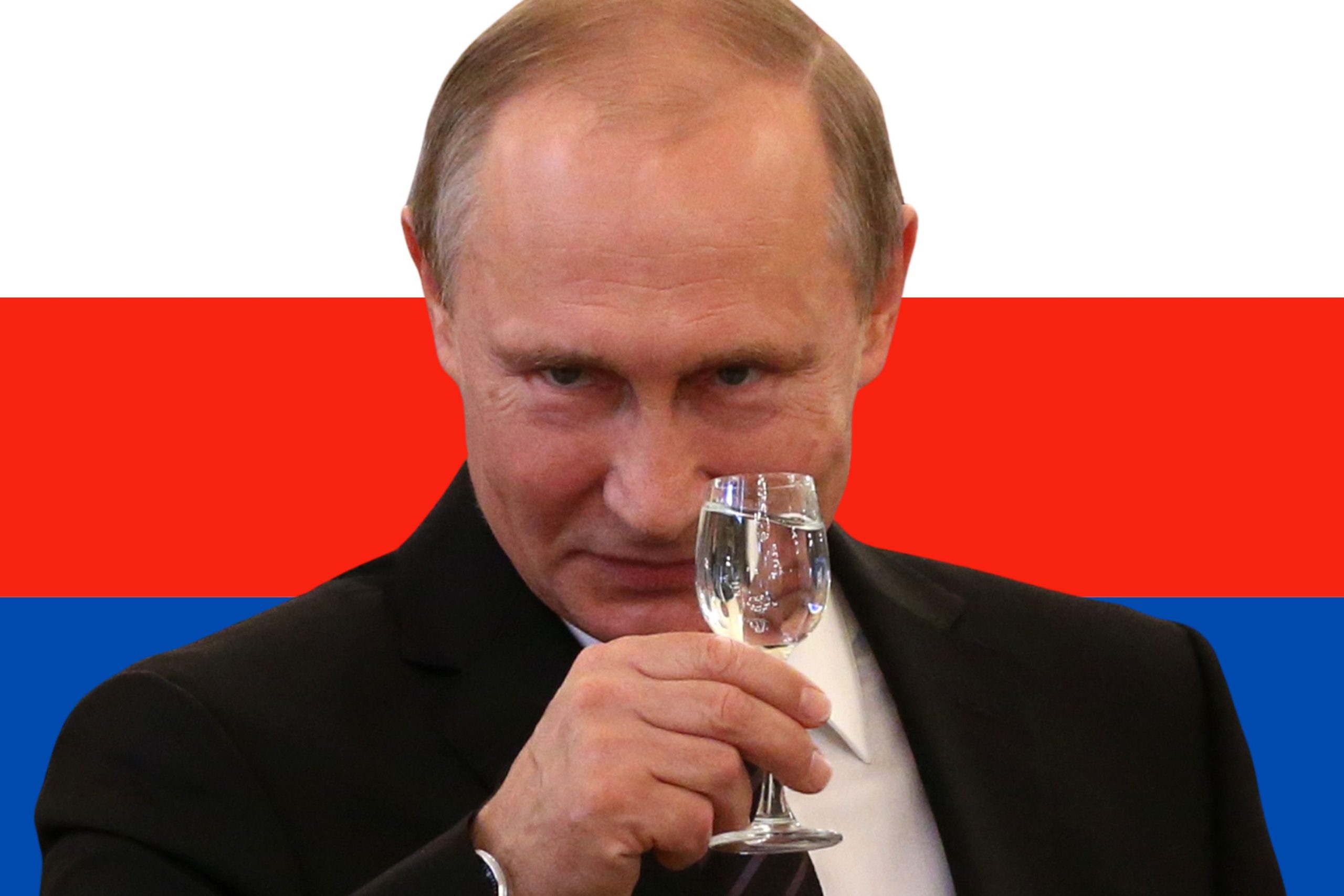World
Putin Won – Newsweek

The Russia-Ukraine Conflict: A New Era of Geopolitical Shifts
The Russia-Ukraine conflict reached a pivotal moment in February 2024 when former U.S. President Donald Trump revealed that he had agreed to negotiations with Russian President Vladimir Putin. This move marked a significant shift in the geopolitical landscape, potentially altering the trajectory of the war that has raged for nearly three years. In a televised address on February 24, 2022, Putin had justified the invasion of Ukraine as a "special military operation," citing NATO’s eastward expansion as a direct threat to Russia’s security. He argued that NATO’s growing presence near Russian borders left Moscow with no choice but to act. Now, with Trump’s announcement, it appears that Putin’s long-stated goal of preventing Ukraine’s integration into NATO—and halting NATO’s enlargement—may be closer to realization.
Putin’s Strategic Victory and the Shift in U.S. Policy
The announcement of talks between Trump and Putin sent shockwaves through Europe, with many leaders expressing alarm. analysts and experts have interpreted this development as a significant victory for Putin, both strategically and symbolically. Defense Secretary Pete Hegseth’s statements appear to align with Putin’s demands, dismissing the possibility of Ukraine returning to its pre-2014 borders or joining NATO. This stance has been described as a "discursive victory" for Russia, signaling that the United States may be acquiescing to Putin’s terms even before formal negotiations begin. The Kremlin has celebrated the talks as "historic," with prominent Russian figures like Senator Alexei Pushkov declaring that the call between Trump and Putin would be remembered as a landmark moment in international diplomacy. For Ukraine, however, the prospect of losing territories annexed by Russia since 2014—such as Crimea and parts of Donbas—now seems increasingly likely.
Economic and Domestic Implications for Russia
Despite the geopolitical gains, Russia’s economy remains under significant strain due to international sanctions. However, recent developments have provided Putin with much-needed respite. The Moscow Exchange (MOEX) and the RTS Index surged by over 6% following Trump’s announcement, and the ruble strengthened against the U.S. dollar. While inflation and economic instability persist, Putin is likely buoyed by these positive indicators. Domestically, Putin has also consolidated his position by suppressing opposition, often through harsh measures. The death of Alexei Navalny, Russia’s most prominent opposition leader, marked a turning point in Putin’s crackdown on dissent. Additionally, Trump’s sanctions against the International Criminal Court (ICC), which had issued an arrest warrant for Putin in 2022, have further shielded the Russian leader from international accountability. These developments have strengthened Putin’s hand, both at home and abroad.
The Sideling of Europe and the Rise of U.S.-Russia Talks
The sudden shift in U.S. policy has left European leaders scrambling to respond. Historically, the U.S. and its European allies have presented a united front in supporting Ukraine, but Trump’s decision to engage directly with Putin has raised concerns about Europe’s role in future negotiations. European officials fear being sidelined, with the Financial Times reporting that they may be left to bear the financial and security burdens of post-war reconstruction in Ukraine. Marie Dumoulin of the European Council on Foreign Relations warned that excluding Europe from the talks could weaken the West’s negotiating position, depriving the U.S. of critical leverage to push Russia toward concessions. Meanwhile, analysts have drawn parallels to the appeasement policies of the 1930s, with some comparing Trump’s stance to British Prime Minister Neville Chamberlain’s infamous dealings with Adolf Hitler before World War II.
The Future of Ukraine and NATO Membership
The implications of Trump’s negotiations extend far beyond the immediate conflict. For Ukraine, the prospect of joining NATO now seems increasingly remote. Pete Hegseth’s comments effectively closed the door on Ukrainian membership, a key demand of Putin’s. Ukrainian leaders have expressed concern about the sudden shift in U.S. policy, with Kira Rudik, leader of the Holos Party, questioning whether Europe is prepared to take on greater responsibility for Ukraine’s security. Marko Mihkelson, an Estonian politician, described the situation as "a dark day for Europe," while analysts like Keir Giles of Chatham House warned that any ceasefire would likely be short-lived, giving Russia time to regroup and prepare for further advances. For Ukraine, the stakes could not be higher: without meaningful security guarantees, the country risks being left vulnerable to future aggression.
Conclusion: A New Geopolitical Order?
As the situation continues to unfold, one thing is clear: the Russia-Ukraine conflict has entered a new and uncertain phase. Putin appears to have gained significant ground, both militarily and diplomatically, while Ukraine faces an increasingly precarious future. The United States’ sudden shift in policy has disrupted the alliances and strategies that have defined the conflict to date, leaving Europe in a state of disarray. Whether the talks between Trump and Putin will lead to a lasting peace—or merely set the stage for further conflict—remains to be seen. What is undeniable, however, is that the geopolitical landscape of Europe has been irrevocably altered, and the consequences of these developments will reverberate for years to come.











